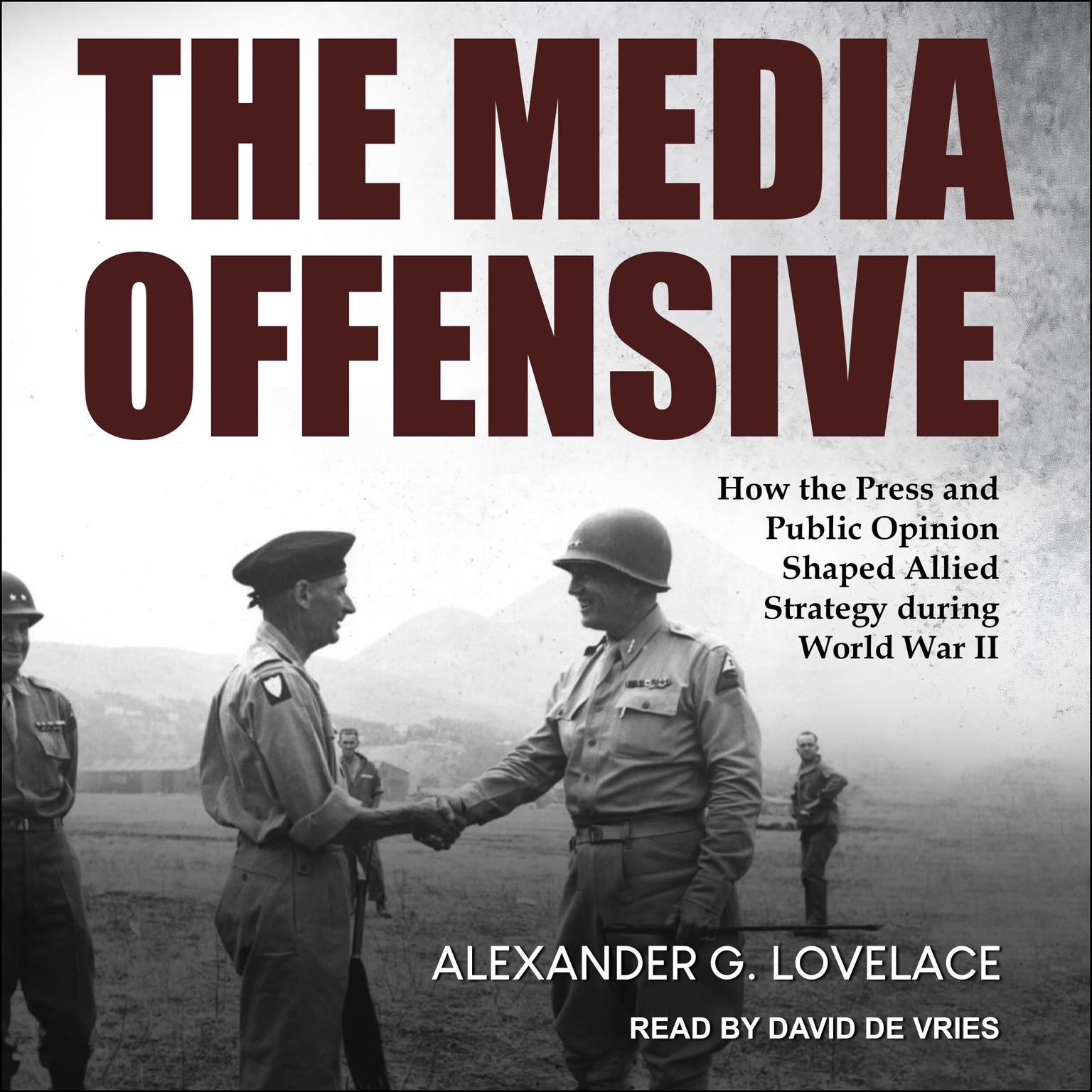 Play Audiobook Sample
Play Audiobook Sample
The Media Offensive: How the Press and Public Opinion Shaped Allied Strategy during World War II Audiobook
 Play Audiobook Sample
Play Audiobook Sample
Quick Stats About this Audiobook
Total Audiobook Chapters:
Longest Chapter Length:
Shortest Chapter Length:
Average Chapter Length:
Audiobooks by this Author:
Publisher Description
World War II was a media war. President Franklin D. Roosevelt used the press to a great extent, of course, but as the war progressed, the media also came to influence commanders' decisions on the battlefield. Negative media pressure and the fear of V-1 bombs damaging British morale provided the impetus for the breakout of Normandy and the unsuccessful attempt to liberate the Netherlands in the fall of 1944. Soon afterward, Eisenhower was forced to hold the dangerously exposed city of Strasbourg because of French public opinion. By V-E Day, even Eisenhower was attempting to get more publicity for American, as opposed to Allied, units.
The Media Offensive offers a new way to understand military-media relations during World War II. The press and public opinion shaped not only how the conflict was seen but also how it was fought. Alexander Lovelace demonstrates that the US military repeatedly discovered that the best effects resulted from accurate news stories.
Lovelace recasts World War II in a new and unique fashion by placing media and public opinion at the center of battlefield decision-making. In what could be called "the new history of war reporting," the focus is switched from how the military controlled reporters to how military decisions were shaped by the press.
Download and start listening now!
The Media Offensive Listener Reviews
Be the first to write a review about this audiobook!
About David de Vries
David de Vries, an Earphones Award-winning audiobook narrator and veteran stage actor and director, spent three years in the cast of Wicked and was the last Lumiere in the Broadway production of Beauty and the Beast. He has also appeared in numerous films and voiced commercial campaigns for companies large and small, including American Express, AT&T, UPS, Motorola, Georgia-Pacific, Delta Airlines, Coca Cola, and Ford, among others. He can be seen in a number of feature films, including The Founder, The Accountant, Captain America: Civil War, and Billy Lynn’s Long Halftime Walk. On television, his credits include House of Cards, Nashville, and Halt and Catch Fire.


